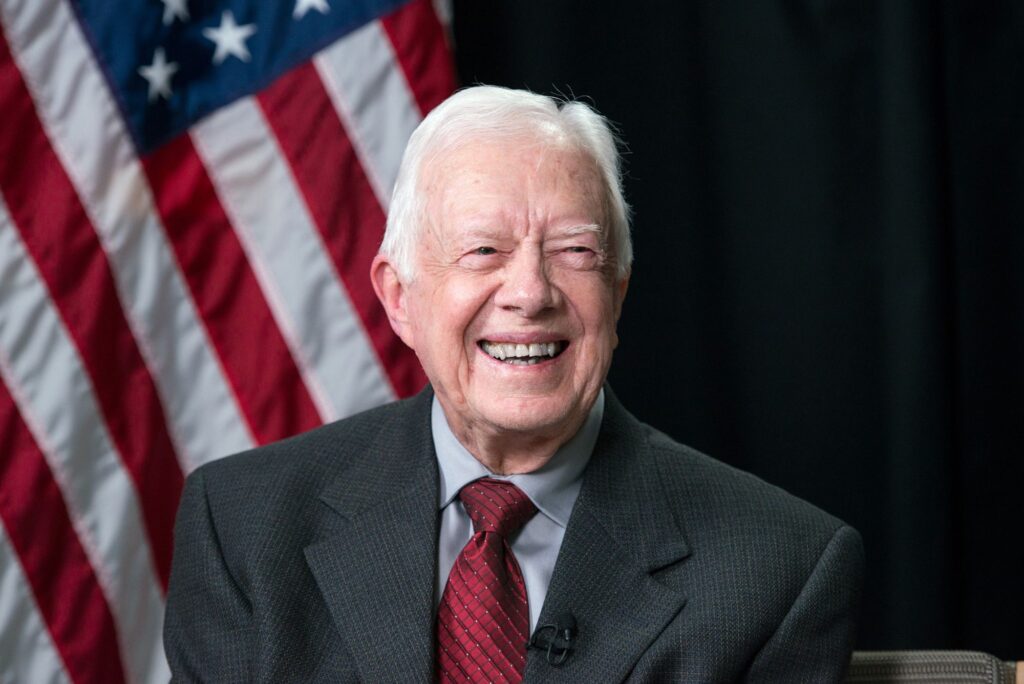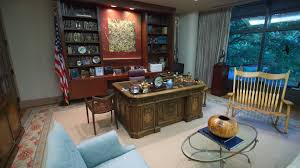
I had a brief meeting with Jimmy Carter when I was a visiting professor at Emory University. A colleague who knew the Carter Center staff arranged the visit, and thought that the former president would be interested in my work on global terrorism.
The Center was in several acres of woods and gardens not too far from the Emory campus. It was a cluster of buildings, nestled in the foliage — a less pretentious setting than, say, the Reagan library in Simi Valley, which I had also visited. The Carter center was full of activities and events. It was much more than just a museum for a former presidency.
There was a lecture hall and conference rooms. Seminars and workshops were held regularly. There were also offices for projects, like peacemaking, the effects of global warming, and eradicating tropical diseases.
There was also, of course, a hallway of presidential photographs and the obligatory recreation of the oval office. My impression was that Carter did not in fact, work in that recreated oval office, since it seemed inordinately spotless and clinically neat.
My impression was correct. Carter’s actual office was in a different building. It was a nice spacious room with floor to ceiling windows looking out on the gardens and the Georgia woods. A version of the White House’s Resolute Desk stood in front of a wall of books. The desk was crafted by a local woodsman to look like the original.
Carter had been meeting somewhere else on the grounds, and came in a bit late, greeting me warmly. I had a list of questions I wanted to ask, many about the decisions to try to liberate the hostages in Iran when he was president. But before I could say anything, he began to ask me questions.
He wanted to know something about my background. I explained that my PhD was in political science but before that I had completed a degree in theology. He nodded, approving of the combination of interests in politics and religion.
Then he wanted to know how I got involved in studying terrorism. Apparently someone had briefed him that this was my area of expertise. I told him that I had lived in India for several years, in the area where the Sikh separatist movement erupted in the 80s, and I wanted to understand how religious commitment could lead to violence.
He said he had wondered the same thing. I wanted to ask him more about what he meant, but immediately he turned to the situation in the Middle East. Did I know anything about Hamas, he asked.
I told him I had interviewed the founder of the movement, Sheikh Yassin, and many of the other leaders. Carter wanted to know what my impression of them was.
Certainly committed, I said. They were unyielding on their view of the situation. They felt that their homeland had been invaded and their culture was imperiled. They saw what we think of as terrorism as defensive acts.
Yes, he agreed. He said he had met with some of them himself when he was in Israel. I wanted to ask him more about that, but he interrupted and asked me what I had learned from them.
I told him that many of them said that they wanted to live in peace with Jews and jointly share the region. They had nothing against Jewish people, they said. Their problem was with what they regarded as an oppressive government.
I said that I didn’t know whether they really believed this or they were just trying to impress me. But they said it in such a way to make me think that they were more open than we were led to believe. It seemed that negotiation was possible
The suicide attacks are horrible, I said. But I told Carter that I had the impression that even some of the leaders were conflicted about whether this violence was morally justified or even whether it was good political strategy. My sense was that the Hamas activists were not of a single mind, I said.
Carter nodded thoughtfully, and said that he had the same impression when he talked with members of Hamas. When he met with Khaleed Mashaal, the Hamas politburo chief, in Doha, Carter was told by Mashaal that he would welcome a Saudi hosted summit to negotiate a two-state solution.
I was eager to hear more about that. But then an aide came in and told the former president that his next engagement was due, actually overtime, and he had to go.
Carter said it was nice to meet me, and went off to his next appointment. As he was leaving I said I enjoyed meeting with him, and thanked him for all of the good work he had done as president and afterwards.
When I sat in the empty office for a moment after he left, I realized that I had not had the opportunity to forward a single one of the questions I wanted to ask him. Instead, he mostly wanted to listen to me.
For a moment I pondered whether this was a mark of greatness. I wondered whether it was not so much the elegant words we say, but how well we listen. Carter was a good listener. And a great man.

